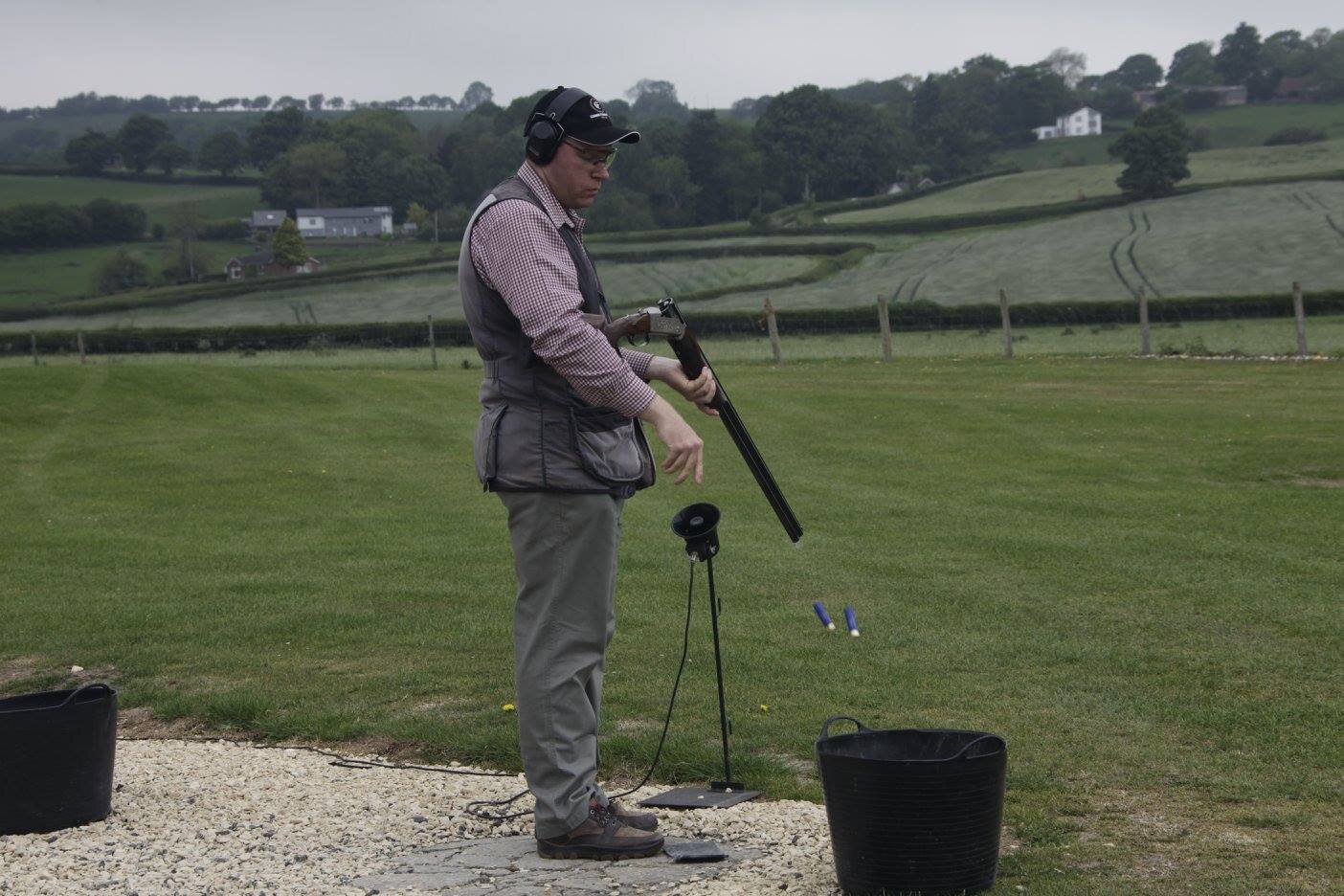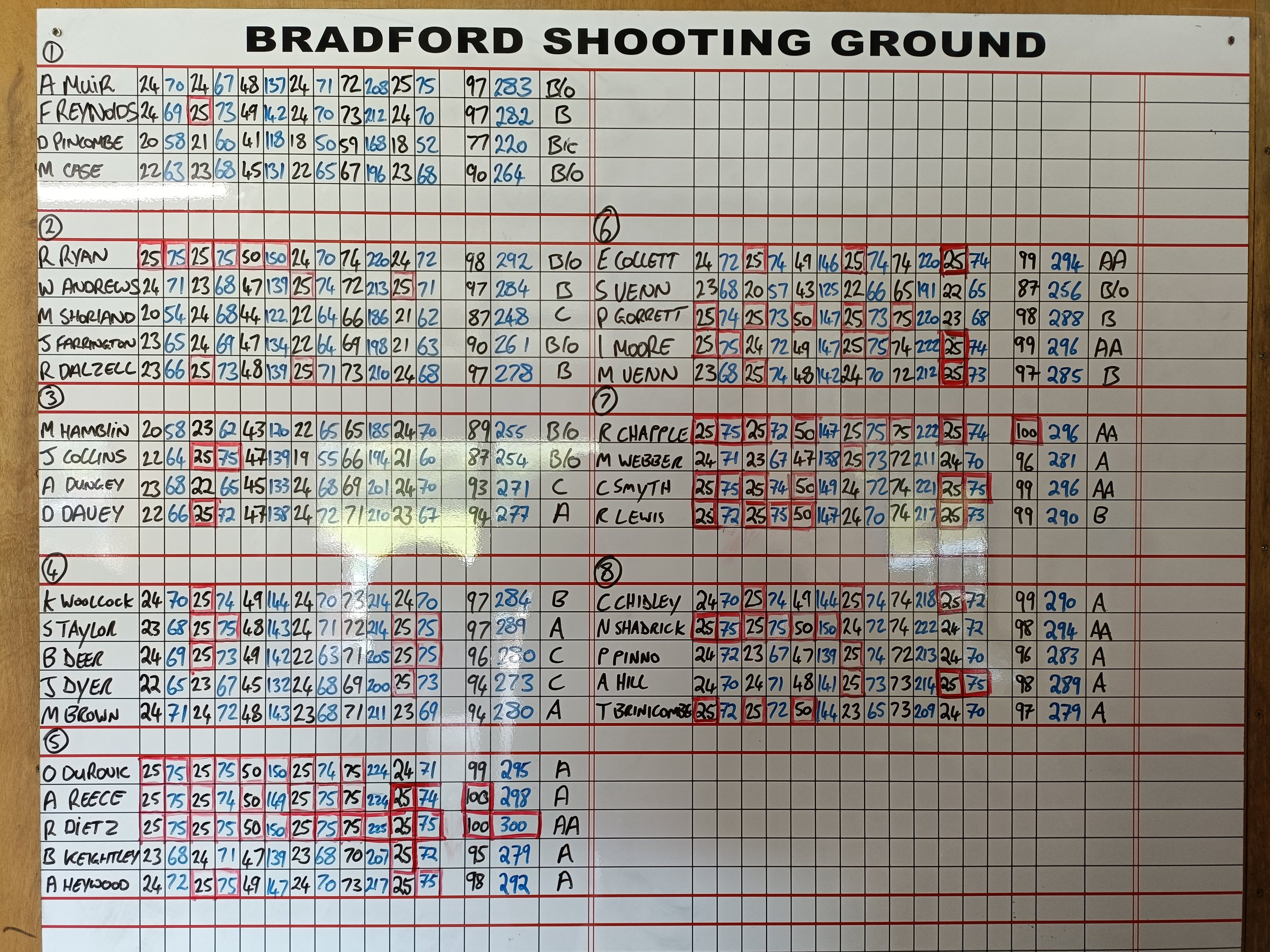
Who I Am and What I Do
Hi! Robert here. Welcome to my site, and thank you for your interest in what I do!
Me with the Dougall Memorial Championship trophy at Bywell Shooting Ground, Northumberland, on 10/6/23…
… and this is how I won it.
I started Rob Dietz Shooting to achieve 3 things:
1 - Re-discover a creative streak that I'd neglected for years, and forgot that I had.
2 - Get paid for doing something that I love to do.
3 - Give something back to a sport that has literally transformed my life, and help fellow trap shooters build the knowledge, skills, and mindset they need to be competitive.
My shooting career began in 2012 when I hit 14 out of 15 targets at a novice have-a-go session, and decided that I should probably do a bit more of this shooting thing.
So I sought out a shooting ground relatively near to me here in the UK, and learned the basics in a series of lessons from a good instructor on Sporting targets over a few months.
That set me up well with a solid foundation that I could build on, and it wasn’t long before I’d sorted out my shotgun certificate, joined the CPSA, bought my first gun, and found my way into competitions.
As an engineer, and someone who enjoys doing a job well and thoroughly, I wasn’t content to just go out at the weekend and shoot a few targets for fun.
I wanted to do this properly; become as good as I could be, go as far as I could, win stuff, and do something worth remembering, however small it might be.
A year on the Sporting clays circuit saw me reach B class, but dealing with targets that all did different things was a bit overwhelming and frustrating.
I remembered what my instructor said - “You might prefer Down the Line and trap shooting.” So I tried it, and he was absolutely right. I took to it like a duck to water.
2 months later I shot my first recorded 100 straight (a 100/298) - and thought I’d cracked it.
But then, like many others who get their first 100, I discovered the real challenge is learning how to do it again - and more often!
I needed to know more to get better, but I didn’t know anyone who could help me, or any definitive resources I could learn from.
So I had to figure it out on my own.
I took what I’d learned from the lessons and added stuff that I read in books (about shooting and other things), read online, and saw in Youtube videos - it was spread over many places, and some of it was difficult to find.
The process of trying things out, keeping the best stuff that worked, and binning what didn’t was long, costly, and involved shooting tens of thousands of targets.
As I gained more experience, and gleaned valuable insights from speaking to and watching other shooters, I refined what I was doing, and discovered a lot about myself and what shooting well really means.
While spending thousands of pounds over the years on changing guns, trying to find “the right one”, I learned a lot about the importance of good gun fit and balance - and that you don’t need a stupidly expensive gun to shoot well!
(I won my first County and Regional Championships, and earned my first England Team cap, using a £1300 second-hand Miroku Mk38 that I still have in the cabinet.)
And amongst all of that, the hardest challenge for me has been the mental game.
Trap is the most unforgiving discipline - there’s absolutely no margin for error.
Dropping just a single point can cost you a winning position, and you’re left wondering why the target you just missed didn’t break when you were sure everything looked right.
Then you miss the next one, because you’re still trying to work it out.
And then you get frustrated and miss more, or give up because now you can’t get the score you wanted when you woke up this morning, and you know you’ve lost.
Building the right processes and mindset to cope with all that and keep striving to shoot well in the face of disaster is tough, but vital, both in competition and for growing as a shooter.
So, knowing how hard it’s been for me to get to where I am now, how long it’s taken, and what it’s cost me (but not in money - I hate to think how big that bill is!), I want to be that person who can teach trap shooters who want to do what I do, what they need to know, and hopefully save them years of searching, frustration, trial and error, and wasted money.


